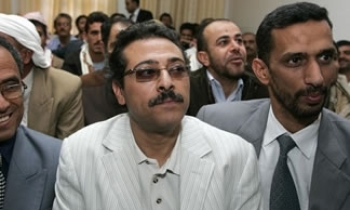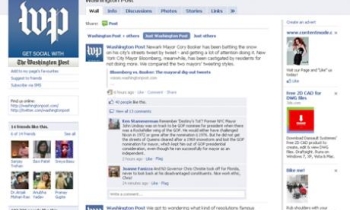The Chronicle seemed to splatter itself with mud and wrap itself in honor almost all at once on Tuesday night.
About 75,000 papers -- roughly a sixth of the circulation -- went out the next morning with the inspirational headline. " 'Miracle' in West Virginia." Forty-one hours after an explosion left 13 miners trapped, the accompanying story said, 12 were found alive.
It's a tale that newspapers across the country were eager to tell. Perhaps too eager, because as midnight approached here and thousands of papers already had been printed, it was becoming clear that the miracle was a mirage, that delirium had turned to despair.
Many readers doubtless understood that The Chronicle had been caught in a time trap -- an unyielding deadline had arrived with no indication the story was about to abruptly change course. Others, though, wondered how the paper could have bought into the improbable news without solid verification.
With the clarity that only hindsight can bring, it looks like a good question. The early story, which was assembled from the Associated Press and New York Times services, was long on color, with word pictures of celebration and joy. But a closer reading reveals little hard evidence behind the purportedly good news.
To be sure, the story quoted West Virginia Gov. Joe Manchin, who said, "They told us they have 12 alive. We have some people that are going to need some medical attention." The next edition quoted a West Virginia congresswoman saying roughly the same thing.
Those not-quite-specific confirmations and the unbridled relief from the families were the basis for the early stories.
Did The Chronicle, most every other morning newspaper and TV news rush to judgment? From today's vantage, it's tempting to say yes. In this story, as with all others, there are at least two basic questions to ask: Says who? And, how do they know? The "says who" part was clear. The "how do they know" part was absent. Where did the governor get his information? Had he checked it? Who was the primary source? In all, it was a signal that the story should have been cast more cautiously.
Still, when the governor speaks, it's hard not to listen. And when the families erupt into celebration, it's hard not to believe what you see. Yes, the paper should have qualified the developments more carefully -- emphasizing, for example, that there was no immediate verification from the company, International Coal Group Inc.
It now appears that someone among the rescuers misspoke or someone misheard, setting off the jubilant but misguided reaction. The mining company compounded the situation because it knew within minutes that the report was wrong but said nothing for three hours.
By then, The Chronicle was deep into production, and that's where it acquitted itself well. The first sign of trouble came from watching CNN's live coverage of the accident. A woman approached reporter Anderson Cooper, who had enthusiastically been reporting the good news, with word that a tragic mistake had been made. Quickly, the paper's printing plants were alerted that the story might be wrong. By 11:57 p.m., the AP moved a bulletin attributing the same news to family members. Minutes later the president of the mining company confirmed the turnabout.
In a stop-the-presses moment evocative of a newspaper movie, the paper switched direction, rewriting the story, photo caption and headlines. The fact that the newsroom, printing plants and circulation people managed to deliver the vast majority of papers with the updated story speaks of grace under pressure -- and the advantage of the West Coast time zone. East Coast papers, with earlier deadlines, had little or no opportunity to recover. The news director of The Chronicle's Web site, SFGate.com, was awakened about 12:30 a.m. and revised the online story within 15 minutes.
Journalists now are engaged in a paroxysm of self-analysis over how the story was handled. It's healthy and might produce better results the next time TV, radio, newspapers -- and yes, even the Internet -- are presented with a "Dewey Defeats Truman" dilemma. But much as I wish the story had been couched more cautiously, I doubt that under the same circumstances I would have had the prescience to say, "Hold off on the story."









